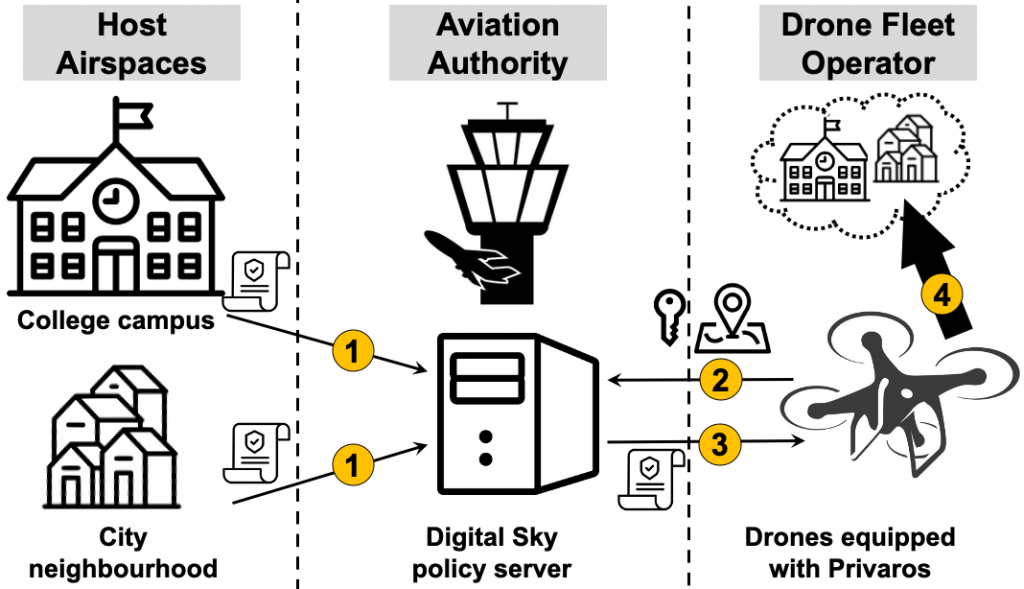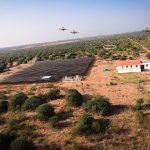
Delivery drones are typically equipped with various sensors such as cameras, microphones, GPS, and Lidar. A malicious drone fleet service operator could misuse these sensors to turn delivery drones into flying spies.
Researchers in the Department of Computer Science and Automation led by Vinod Ganapathy have now developed “Privaros”, a set of enhancements to the drone software stack, which allows “host airspaces” such as an apartment complex, a university campus, or a city municipality to ensure that “guest” delivery drones visiting the airspace are privacy-compliant. The host airspace decides what privacy policies it wishes to enforce. For example, an apartment complex could require that all images of residents appearing in the video feed captured by the drone be blurred out before the video feed leaves the drone. Or, a city municipality may require that a drone only moves along certain pre specified drone lanes.
Privaros incorporates new mechanisms into the drone software stack that allow such host-specified policies on board the drone. Trusted hardware on board can be used to prove to the host airspace that the guest drone is in compliance with its policies. This work also shows how Privaros can be integrated with upcoming policy frameworks, such as India’s Digital Sky framework.






